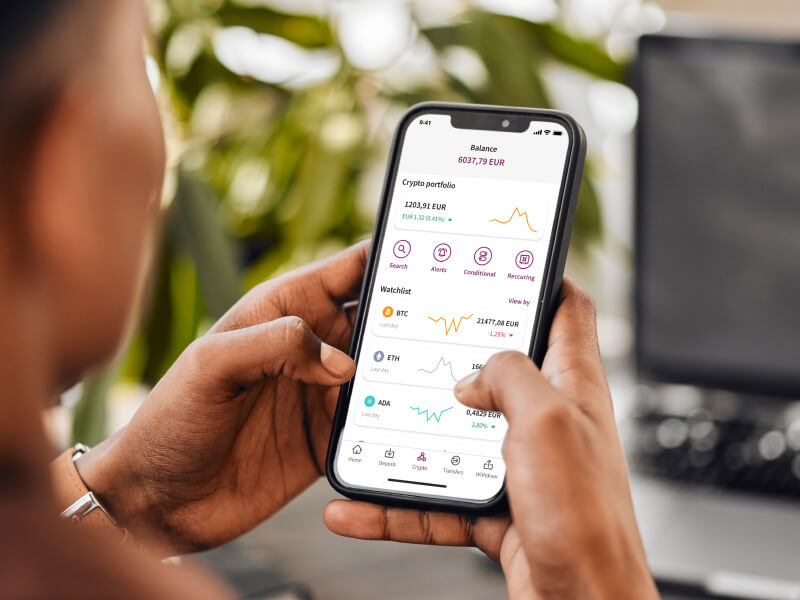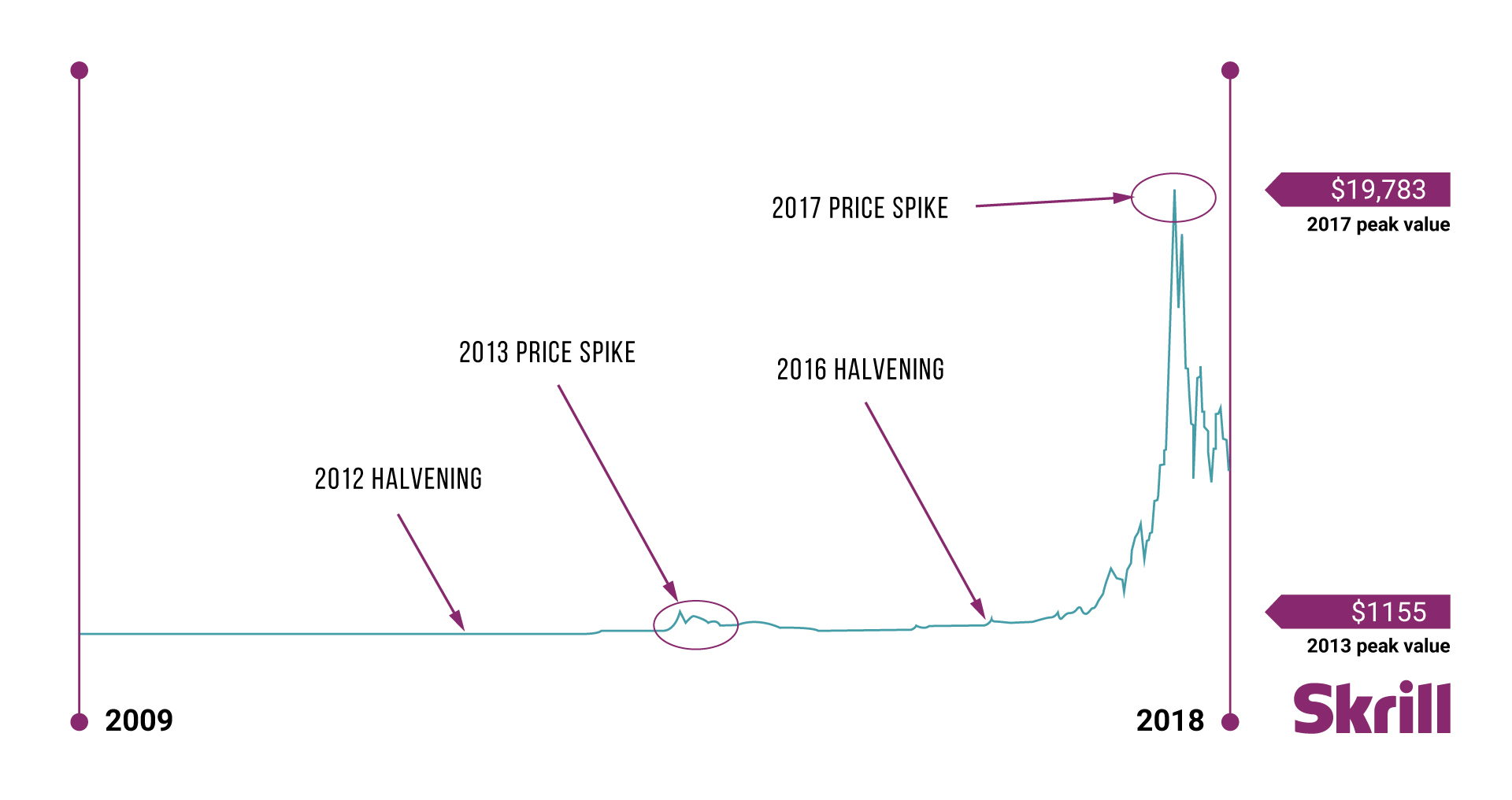Don’t invest unless you’re prepared to lose all the money you invest. This is a high-risk investment and you should not expect to be protected if something goes wrong. Take two minutes to learn more.
This article is not intended to be financial, investment or trading advice. This article is for information and solely for education purposes. It does not protect against any financial loss, risk or fraud.

Many traditional Latin American currencies, such as the Argentine peso or the Venezuelan bolivar, have devalued considerably in recent times. For example, year-on-year inflation in Argentina reached 114% and annual inflation in Venezuela is averaging over 200% since 2016.
This economic instability has caused an increasing number of people to seek alternative forms of investment and wealth preservation. In this same period, Argentina had an annual growth of 20% in the adoption of cryptocurrencies and is approaching 10 million users according to Forbes.
Here, we will delve into how cryptocurrencies are transforming finance thanks to their technology and benefits, while also considering their intrinsic risks. Read on to discover how buying cryptocurrencies and sending money with Skrill can help you navigate this new world.
Why do people use cryptocurrencies?
1. Decentralised Finance (DeFi)
Cryptocurrencies, unlike traditional currencies like the euro, operate through blockchain technology rather than relying on intermediaries such as banks. This feature of decentralised finance eliminates the need to trust a third-party institution to manage your funds and personal information.
Decentralised financial services are universally accessible, irrespective of borders or time zones. Operating 24/7, these services can be accessed by anyone with an internet connection. This unprecedented level of access brings financial services to a global audience, significantly benefiting the unbanked population.
Furthermore, the level of transparency in DeFi services exceeds that offered by centralised institutions. All transactions are public, allowing for more transparency in how DeFi services operate.
2. Fewer processing and transaction fees
Cryptocurrencies, such as bitcoin (BTC) and ether (ETH) often boast lower transaction fees than fiat currencies. For example, the centralised SWIFT system can take from 15 to 20 minutes per transaction and cost €25 per wire transfer on average, plus additional fees of up to 7%.
In contrast, Ethereum transactions take an average of 12 seconds with fees as low as 1%. This is due to the absence of intermediaries, reduced infrastructure requirements, market competition, and flexible fee structures. These advantages result in cost reductions and more affordable transaction fees in the cryptocurrency realm.
Thus, many people prefer to transact with cryptocurrencies over sending money via their banks, with the secure encryption used in transactions further boosting their appeal.
3. ID is not required to use a crypto wallet
Those who lack official identification or who are part of the unregulated economy have great difficulty accessing traditional banking services. For this sector of the population, cryptocurrencies present a solution, allowing access to financial transactions and digital payments.
In fact, 45% of the Latin American population is unbanked, so cryptocurrencies can help provide these people with much-needed financial inclusion.

4. New asset for portfolio diversification
Despite their price volatility, cryptocurrencies offer an innovative way to diversify an investment portfolio. About 425 million people around the world harness this asset class to exercise greater control over their personal finances.
The Skrill wallet offers more than 40 different cryptocurrencies, making it an extremely convenient tool in an era where digital currencies are gaining widespread acceptance.
5. Potential hedge against inflation
It’s no secret that Latin America faces significant challenges with inflation, leading to the recurrent devaluation of national currencies. Recent cases, such as those previously mentioned in Venezuela and Argentina, highlight the utility of cryptocurrency applications as potential safeguards for savings against chronic inflation.
A recent Gemini study highlighted the correlation between high inflation and increased crypto adoption: populations most impacted by inflation are 5 times more likely to buy cryptocurrencies.
What are the risks and challenges associated with cryptocurrencies?
-
Environmental impact: Cryptocurrency mining, particularly for coins that use the proof-of-work system such as bitcoin, can require significant computational power and, consequently, energy. This energy consumption can pose considerable environmental challenges, especially when operations are scaled up.
However, solutions are being proposed and implemented. For instance, before its transition from proof-of-work to proof-of-stake (PoS), Ethereum consumed approximately 83.89 TWh of electricity each year. Now, it has reduced this footprint by 99.95%, to 0.01 TWh. - Volatility and lack of regulation: The decentralisation of cryptocurrencies can be a double-edged sword, as the lack of clear regulations can generate distrust. Another major drawback is the volatility of the market: the way cryptocurrency prices fluctuate makes it a high-risk market.
Nowadays there are regulatory initiatives like MiCA in the European Union, but these initiatives are yet to be implemented.
How to invest in cryptocurrencies with Skrill?

With a Skrill account you can buy, sell and hold an interest in more than 40 cryptocurrencies. Here are some of the reasons why people invest in cryptocurrencies using Skrill:
- It is an easy-to-use app.
- It shows prices in real time to keep you informed about changes in the market.
- You have the option to buy and sell with conditional orders and set up recurring buys without needing to log in. You can register and receive more information about how to invest in cryptocurrencies with Skrill here.
Investing in cryptocurrencies can potentially carry both rewards and risks. Key aspects to consider include:
Potential rewards:
- Enhanced financial access: Cryptocurrencies can provide financial services to the unbanked population.
- Lower transaction fees: Cryptocurrency transactions typically have lower fees than traditional banking systems.
Potential risks:
- Price volatility: Cryptocurrency prices can fluctuate greatly, requiring investors to manage their risk effectively.
- Need for due diligence: Understanding the cryptocurrency landscape and each specific asset is crucial before making any investment.
Despite these considerations, the advent of cryptocurrencies has left an indelible impact on the financial landscape.




